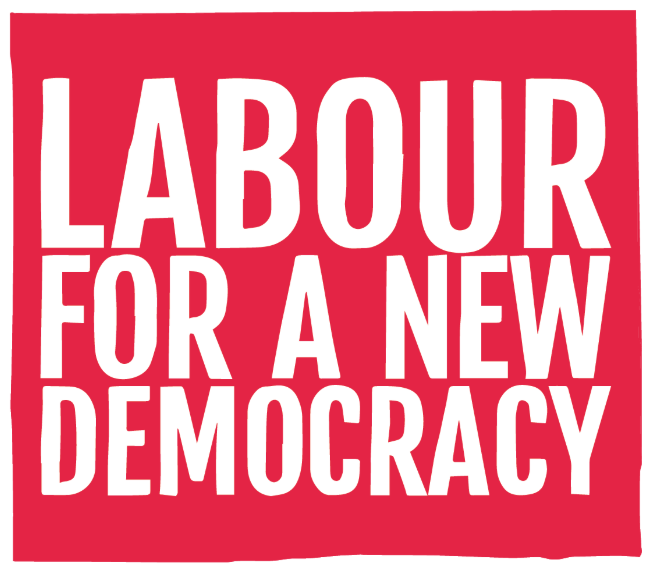L4ND’s response to the National Policy Forum
This submission was originally posted on the Safe and Secure Communities section of the Labour Policy Forum website.
Labour for a New Democracy (L4ND) believes Labour should introduce Proportional Representation (PR) for general elections. Support for this is mainstream:
2022 conference overwhelmingly backed a manifesto commitment to introducing PR for general elections in Labour’s first term (motion text).
a majority of affiliated trade unions support electoral reform: ASLEF, FBU, MU, TSSA, Unison, Unite.
83% of Labour members support PR, just 12% oppose (YouGov).
Of CLPs that debated PR over 96% have adopted pro-PR policy - now 60% of all CLPs (full list).
To champion equality, Labour must support equal votes
Our UK-wide consultation found the principle of equality drives support for electoral reform above all else. Members and trade unionists want people everywhere to have a fair and equal say in the election of their Parliament and government.
Members agree with Keir Starmer that: “millions of people vote in safe seats and feel their voice doesn’t count.” This reflects their experience in swathes of the country where no parties campaign because the result is effectively a foregone conclusion. Labour, like all parties, is forced to prioritise swing voters in marginal seats. This results in a political system unresponsive to most voters, distrust in politics, dissatisfaction with democracy, and deep regional inequality.
Proportional Representation works
As Mark Drakeford says, Labour in Wales has experienced “25 years of winning and working within a proportional system“.
No other democracy in Europe uses First Past the Post (FPTP) for general elections. None of Labour’s sister parties would exchange their proportional system for ours.
There is academic consensus that FPTP has an inherent right wing bias, producing more right-wing governments than proportional systems. In 19 of the last 20 general elections most people voted for parties to the left of the Conservatives yet they have been in power two thirds of that time. PR levels the playing field, resulting in Labour parties governing for more of the time in proportional democracies.
Keir Starmer is right that the UK needs at least a “decade of renewal” to undo the damage of the last 13 years. Introducing PR in our first term will greatly increase the likelihood of this.
Labour’s democratic reform agenda is welcome, but incomplete without PR
Members welcome the Leader’s statements that “we need a new government and a new way of governing” and “economic change must go hand-in-hand with political change”. But as our report Everything but the Commons explains, devolution and upper chamber reform will only achieve their aims if accompanied by PR.
The evidence shows PR for general elections is essential for a more democratic, equal and united UK:
Devolution has increased satisfaction with devolved democracy - but undermined satisfaction with UK-wide democracy: places with the most devolution have the lowest trust in Westminster, so further devolution alone cannot restore faith in democracy.
Countries which combine maximal devolution with FPTP have experienced the same collapsing trust in democracy as the UK: only those with extensive devolution and PR general elections have high satisfaction with democracy.
FPTP feeds the fissures which risk prising the UK apart: it pits devolved bodies against unrepresentative Westminster governments which lack majority support in any of the four nations.
As the Brown Review identifies, pushing power out of Westminster must be complemented by dependable, supportive central government action. For as long as we have FPTP, we risk unrepresentative Westminster governments - like the current one - neglecting or actively undermining Labour’s efforts to address inequality and defend democracy.
PR for general elections is the best way to ensure central government tackles regional inequality, restores trust in our politics and brings the UK back together.

